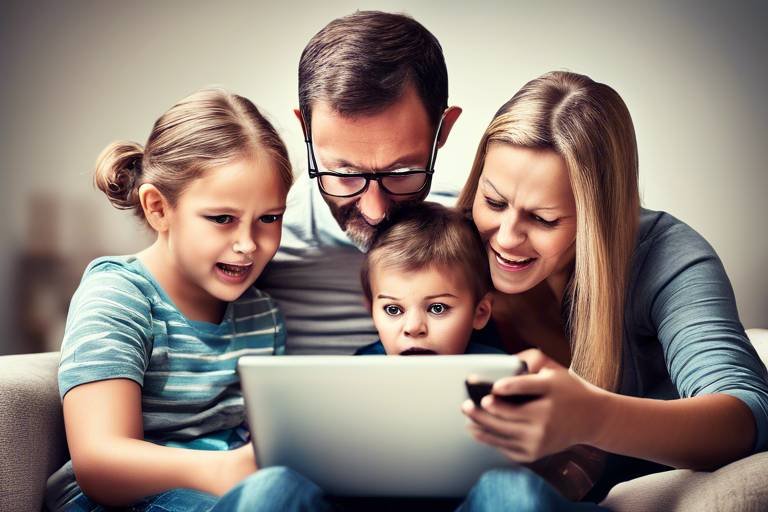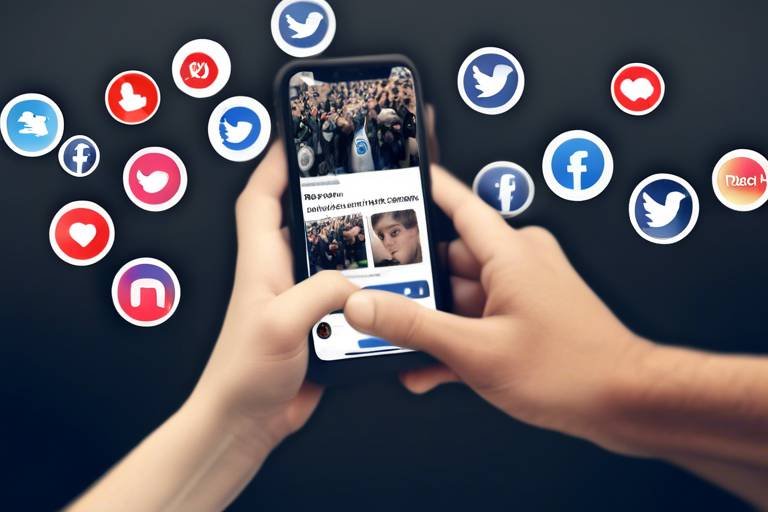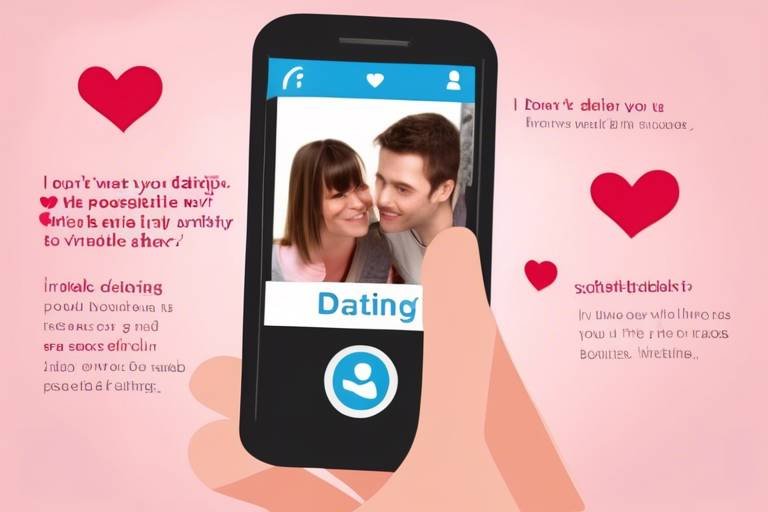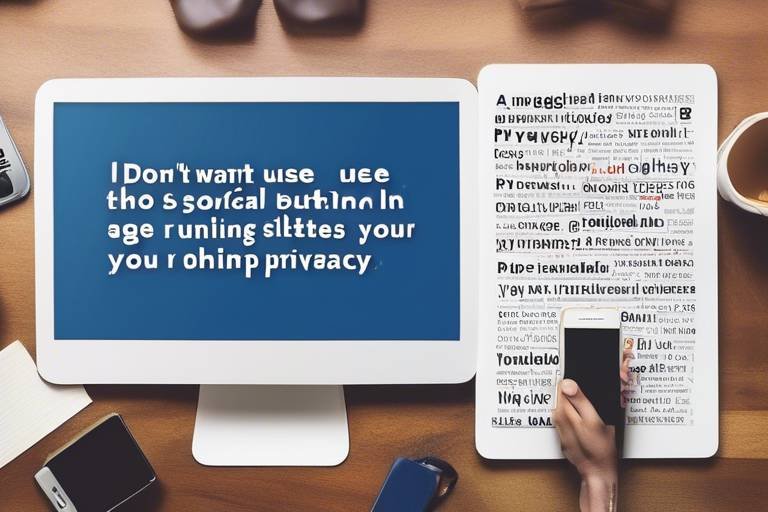The Influence of Social Media on Teens' Self-Esteem
In today’s digital age, social media has become an integral part of our lives, especially for teenagers. It serves as a platform for self-expression, connection, and entertainment. However, the impact of social media on teens' self-esteem is a double-edged sword. On one hand, it can enhance their sense of belonging and validation, while on the other hand, it can lead to comparison, anxiety, and feelings of inadequacy. This article explores the multifaceted relationship between social media and self-esteem among adolescents, shedding light on both the positive and negative effects of online interactions.
Social media can be a powerful tool for fostering connections and building support networks among teens. It allows them to share experiences, celebrate achievements, and receive encouragement from peers. When teens engage positively on these platforms, they often experience a boost in self-esteem. For instance, receiving likes and supportive comments on a post can create a sense of validation and acceptance. Moreover, social media can facilitate the discovery of communities that resonate with their interests and identities, providing a space where they can express themselves freely and authentically.
Despite the benefits, social media also has a darker side, particularly when it comes to social comparison. Teens frequently compare themselves to others based on curated images and highlight reels, which can lead to feelings of inadequacy. This constant comparison can distort their self-image and create unrealistic expectations. For example, when a teen sees a friend’s glamorous vacation photos or a celebrity’s flawless appearance, they might feel that their own life is lacking. This can result in a vicious cycle of low self-worth and anxiety, as they strive to meet these unattainable standards.
One of the most significant areas affected by social media is body image. Platforms like Instagram and TikTok often showcase idealized body types, which can distort teens' perceptions of beauty. Research indicates that exposure to these images is linked to body dissatisfaction among adolescents. Teens may start to believe that they need to conform to these narrow standards of beauty to be accepted or liked. The pressure to look a certain way can lead to unhealthy behaviors, such as extreme dieting or excessive exercise, further exacerbating their self-esteem issues.
Influencers play a significant role in shaping teens' beauty standards and self-perception. Their carefully curated content often promotes a specific lifestyle and appearance, which can create unrealistic expectations for young viewers. Many teens idolize these influencers, believing that achieving a similar look or lifestyle will lead to happiness and acceptance. This phenomenon can intensify body image issues, as teens may feel that they are not good enough compared to the seemingly perfect lives of those they follow online.
Developing healthy coping mechanisms is vital for teens facing body image pressures. Here are a few strategies that can help:
- Limit Social Media Exposure: Encourage teens to take breaks from social media to reduce the impact of negative comparisons.
- Focus on Positivity: Promote following accounts that uplift and inspire rather than those that promote unrealistic standards.
- Practice Self-Compassion: Teach teens to be kind to themselves and recognize that everyone has flaws.
By implementing these strategies, teens can navigate social media more positively and foster a healthier self-image.
Another psychological effect of social media is the phenomenon known as FOMO, or the "fear of missing out." This feeling can lead to increased anxiety and lower self-esteem among teens. When they see friends hanging out without them or attending events they weren’t invited to, it can trigger feelings of exclusion and loneliness. Social media amplifies these feelings, making it easy for teens to feel disconnected from their peers. This cycle of anxiety can further diminish their self-worth, as they may believe that they are not valued or liked by their friends.
Parents play a crucial role in helping teens manage their social media use. By providing guidance and support, they can help their children navigate the complexities of online interactions. Open communication about the effects of social media is essential. Parents should educate their teens about the potential dangers and benefits of their online engagement, fostering an environment where they feel comfortable discussing their feelings and experiences.
Encouraging open dialogue about social media can help teens understand its impact on their self-esteem. Parents should discuss the importance of critical thinking when consuming online content and highlight the difference between reality and curated online personas. By educating their teens about these issues, parents can empower them to make informed decisions about their social media use.
Establishing boundaries around social media use is another effective strategy for protecting teens' mental health. Parents can create a balanced approach by setting limits on screen time and encouraging offline activities. This can help teens develop a healthier relationship with social media, allowing them to enjoy its benefits without falling prey to its pitfalls.
- How can social media positively impact a teen's self-esteem?
Social media can foster connections and provide a platform for self-expression, leading to feelings of validation and belonging. - What are the signs of low self-esteem in teens due to social media?
Signs may include withdrawal from social activities, excessive comparison to peers, and changes in mood or behavior. - How can parents help their teens manage social media use?
Parents can encourage open communication, set boundaries, and educate their teens about the potential effects of social media.

The Positive Aspects of Social Media
Social media is often viewed through a critical lens, but it’s essential to recognize the positive aspects it brings to the table, especially for teenagers. In a world where connection is often just a click away, social media can serve as a powerful tool for fostering relationships, building communities, and enhancing self-esteem. When teens engage on these platforms, they are not merely scrolling through feeds; they are creating bonds and finding support networks that can significantly uplift their spirits.
One of the most remarkable benefits of social media is its ability to connect individuals from all walks of life. Imagine a teen who feels isolated in their small town, struggling to find peers who share their interests. Through social media, they can discover groups and communities that resonate with their passions, whether it’s gaming, art, or activism. This sense of belonging can be a huge boost to their self-esteem, as they realize they are part of something larger than themselves. These connections often lead to positive reinforcement, where peers celebrate each other’s achievements and support one another through challenges.
Moreover, social media platforms often provide a space for teens to express themselves creatively. Whether it’s through sharing artwork, writing, or videos, these platforms allow them to showcase their talents and receive feedback from a global audience. This not only enhances their skills but also boosts their confidence when they receive recognition for their efforts. The validation they experience can be a powerful motivator, encouraging them to pursue their passions further.
Additionally, social media can serve as a source of information and education. Many teens use these platforms to access content that educates them on various issues, from mental health to social justice. This exposure can empower them to take action, advocate for causes they care about, and develop a sense of agency. When teens feel informed and capable of making a difference, their self-esteem often flourishes.
It's also worth noting that social media can promote mental health awareness. Many influencers and organizations use these platforms to share their stories and discuss mental health openly. This can help reduce stigma and encourage teens to seek help when needed. When they see others sharing their struggles and triumphs, it can inspire them to do the same, fostering a culture of honesty and support.
While it’s easy to focus on the negatives, it’s crucial to appreciate how social media can be a force for good in the lives of teenagers. By leveraging these platforms for connection, creativity, and education, teens can enhance their self-esteem and cultivate a more positive self-image. The key lies in finding a balance—using social media as a tool for empowerment rather than a source of stress. As we navigate the complexities of the digital age, embracing the positive aspects of social media can lead to healthier self-perceptions and more fulfilling interactions.

The Negative Impact of Comparison
In today's digital age, social media has become a double-edged sword for teenagers, particularly when it comes to their self-esteem. The constant barrage of curated images and highlight reels can lead to a toxic cycle of comparison. Have you ever found yourself scrolling through your feed, feeling a pang of jealousy as you see your peers flaunting their seemingly perfect lives? This is a common experience for many teens, and it can have serious repercussions on their mental health.
When teens compare themselves to others online, they often measure their worth against unrealistic standards. Social media platforms are flooded with images that have been filtered, edited, and manipulated to present an idealized version of reality. This can create a skewed perception of what is "normal" or "acceptable," leading to feelings of inadequacy. It's essential to understand that the images we see are often not a true reflection of life, but rather a highlight reel that emphasizes the best moments while glossing over the struggles.
Moreover, social comparison can have significant psychological consequences. Research shows that when teens engage in social comparison, they are more likely to experience:
- Low self-esteem: Constantly feeling like they don't measure up can lead to a diminished sense of self-worth.
- Depression and anxiety: The pressure to conform to perceived standards can contribute to mental health issues.
- Body image dissatisfaction: Teens may develop negative body image perceptions when they compare themselves to idealized body types portrayed online.
It's important to recognize that social media can amplify these feelings of inadequacy. When teens see their friends or influencers living what appears to be a more exciting or fulfilling life, it can lead to a phenomenon known as "FOMO," or fear of missing out. This fear can exacerbate feelings of loneliness and isolation, as teens may feel they are not part of the experiences being showcased online.
Ultimately, the negative impact of comparison on teens' self-esteem is a complex issue that requires attention. Parents, educators, and teens themselves need to work together to foster a healthier relationship with social media. By encouraging open discussions about the unrealistic portrayals of life online and promoting self-acceptance, we can help mitigate the harmful effects of comparison.
- How can parents help their teens deal with social comparison?
Encourage open conversations about social media, emphasizing the importance of self-worth and the unrealistic nature of online portrayals. - What are some signs that a teen is struggling with self-esteem due to social media?
Look for changes in behavior, such as withdrawal from social activities, excessive time spent on social media, or negative self-talk. - Are there any positive aspects of social media that can counteract these negative effects?
Yes, social media can also foster support networks and positive reinforcement, helping teens build connections and self-esteem through community engagement.

In today's digital age, social media platforms are flooded with images that portray an often unrealistic standard of beauty. This constant exposure can create a distorted perception of what is considered attractive, leading to significant body image issues among teenagers. Think about it: when scrolling through feeds filled with flawless skin, toned bodies, and perfectly styled hair, it's easy to feel like you don't measure up. This is particularly troubling for adolescents, who are already navigating the tricky waters of self-identity and self-worth.
The impact of social media on body image is profound. Research indicates that the more time teens spend on these platforms, the more likely they are to develop body dissatisfaction. According to a study published in the Journal of Youth and Adolescence, approximately 70% of girls reported feeling pressure to conform to societal beauty standards, many of which are perpetuated by social media influencers and celebrities. This pressure can lead to unhealthy behaviors, such as disordered eating or excessive exercising, as teens strive to achieve an ideal that is often unattainable.
Moreover, the phenomenon of photoshopping and filters further complicates the issue. When teens see images that have been altered to enhance beauty, it sets a benchmark that is impossible to reach without digital manipulation. This can lead to a cycle of comparison where teens measure their own worth against these altered images, feeling inadequate and insecure as a result. The emotional toll can be devastating, leading to anxiety, depression, and a negative self-image.
To illustrate the impact of social media on body image, consider the following statistics:
| Statistic | Percentage |
|---|---|
| Girls feeling pressure to conform to beauty standards | 70% |
| Boys feeling dissatisfied with their bodies | 40% |
| Teens who have engaged in unhealthy weight control behaviors | 30% |
It's essential to recognize that while social media can sometimes promote positive body image through supportive communities, the overwhelming prevalence of idealized images can lead to detrimental effects. Teens may find themselves caught in a web of comparison, where likes and comments become a measure of self-worth. It's no wonder that many young people feel like they are constantly being judged, not just by their peers but also by a digital world that seems to have set impossible standards.
In light of these challenges, it's crucial for both teens and parents to engage in open conversations about body image and the influence of social media. Understanding that the images seen online are often curated and edited can help mitigate some of the negative feelings associated with comparison. Encouraging a healthy dialogue about self-acceptance and promoting diverse representations of beauty can empower teens to embrace their individuality.
Ultimately, fostering a positive body image in the age of social media requires a collective effort. By prioritizing mental health and encouraging self-love, we can help teens navigate the complexities of their online experiences while building a healthier self-perception.
- How does social media affect teen body image? Social media often showcases unrealistic beauty standards, leading to comparison and body dissatisfaction among teens.
- What can parents do to help their teens with body image issues? Open communication and education about the effects of social media can help teens develop a healthier self-image.
- Are there any positive aspects of social media for body image? Yes, some communities promote body positivity and self-acceptance, which can have a beneficial impact on teens' self-esteem.

Influencers have become a dominant force in the digital landscape, especially on social media platforms like Instagram, TikTok, and YouTube. They wield significant power over the perceptions and behaviors of teenagers. With just a single post, an influencer can set trends, create beauty standards, and even dictate what is considered 'cool' or 'desirable.' This can be both a blessing and a curse for young users. On one hand, influencers can inspire creativity and self-expression; on the other hand, they can perpetuate unrealistic ideals that can severely impact teens' self-esteem.
When teenagers scroll through their feeds, they are often bombarded with images of influencers flaunting perfectly curated lives and bodies. These portrayals can lead to a distorted view of reality, making teens feel inadequate if they don't measure up. The pressure to conform to these idealized standards can be overwhelming. For instance, a recent study found that over 60% of teens felt pressure to look a certain way after viewing influencer content. This statistic underscores the profound effect that social media personalities can have on young minds.
Moreover, the content shared by influencers often glosses over the hard work and editing that goes into creating those seemingly perfect images. Many teens may not realize that these representations are often staged or altered, leading to a false sense of reality. This dissonance can result in feelings of low self-worth and dissatisfaction with their own lives and bodies. It's crucial for teens to understand that what they see online is not always a true reflection of life.
To combat these negative influences, some influencers are beginning to promote body positivity and authenticity. They share unfiltered images and discuss their own struggles with self-esteem and body image. This shift towards more realistic portrayals can help mitigate some of the damage caused by the traditional influencer model. In fact, many teens report feeling more confident when they see influencers being candid about their imperfections.
In conclusion, while influencers can play a significant role in shaping beauty standards and self-image among teens, it is essential for young users to develop a critical eye towards the content they consume. By fostering awareness and encouraging a balanced perspective, both teens and influencers can work together to create a healthier social media environment.
- How do influencers affect teenagers' self-esteem? Influencers can create unrealistic beauty standards, leading to feelings of inadequacy among teens. However, some promote body positivity, which can have a positive impact.
- What can parents do to help their teens navigate influencer culture? Parents can encourage open discussions about social media content, helping their teens understand the difference between reality and curated online personas.
- Are there any positive aspects of influencer culture? Yes, influencers can inspire creativity, self-expression, and promote positive messages about self-acceptance and mental health.

In today’s fast-paced digital world, where social media is a constant presence, it’s crucial for teens to develop effective coping strategies to manage the pressures that come with online interactions. One of the best ways to combat negative feelings stemming from social media is to cultivate a positive online environment. This can be achieved by curating their feeds to follow accounts that inspire and uplift rather than those that induce feelings of inadequacy. For instance, teens can look for body-positive influencers or pages that promote mental health awareness. By surrounding themselves with positive messages, teens can significantly improve their self-esteem and overall outlook on life.
Another effective strategy is to practice mindfulness. This involves being present in the moment and acknowledging feelings without judgment. Mindfulness techniques, such as deep breathing exercises or meditation, can help teens manage feelings of anxiety and stress that may arise from social media use. For example, when teens feel overwhelmed by the pressure to conform to certain beauty standards, taking a moment to breathe and reflect can help them regain focus and self-acceptance.
Additionally, engaging in offline activities can provide a much-needed break from the digital world. Teens can explore hobbies such as sports, art, or music, which not only distract them from negative online influences but also build their self-esteem through skill development. Physical activities, in particular, are known to release endorphins, which can enhance mood and promote a more positive self-image.
Moreover, it’s essential for teens to have a strong support system. Encouraging open conversations with friends and family about their feelings regarding social media can help teens feel less isolated. Sharing experiences and discussing the unrealistic portrayals often found on these platforms can foster a sense of community and understanding. Parents and guardians can also play a pivotal role by being approachable and willing to listen, which can significantly alleviate feelings of anxiety and stress.
Lastly, setting time limits on social media use can help teens regain control over their online experiences. This can prevent excessive scrolling and the negative comparisons that often accompany it. By designating specific times for social media, teens can enjoy the benefits of connectivity without allowing it to consume their lives. This balance is crucial for maintaining a healthy self-image and mental well-being.
In summary, while the challenges posed by social media can be daunting, implementing these coping strategies can empower teens to navigate their online experiences more positively. By fostering a supportive environment, encouraging mindfulness, engaging in offline activities, and setting boundaries, teens can cultivate a healthier self-perception and ultimately enhance their self-esteem.
- How can I tell if my teen is struggling with their self-esteem due to social media? Look for signs such as increased withdrawal from activities they once enjoyed, changes in mood, or excessive time spent on social media.
- What should I do if my teen is being bullied online? Encourage open communication, document the incidents, and report the bullying to the platform. It’s also important to provide emotional support and reassurance.
- Are there any resources for parents to help manage their teen's social media use? Yes, many organizations offer guides and workshops for parents on navigating social media and its effects on mental health.

The term FOMO, or "Fear of Missing Out," has become a buzzword among teens, and it’s easy to see why. In a world where social media is the backdrop of daily life, the constant stream of updates, parties, and gatherings can make anyone feel left out. Imagine scrolling through your feed and seeing friends enjoying a concert you weren’t invited to, or a group outing that you didn’t know about. It’s like being at a party where everyone is having a blast, but you’re stuck outside looking in. This feeling can be overwhelming and can lead to increased levels of anxiety and a significant dip in self-esteem.
Research shows that the more time teens spend on social media, the greater their feelings of FOMO. This phenomenon can create a vicious cycle: the more they see others having fun, the more they feel compelled to check their phones, leading to even more anxiety. It’s a bit like a hamster wheel; they can’t seem to get off. This constant comparison can distort their perception of reality, making it seem like everyone else is living a perfect life, while they are stuck in the mundane.
What’s particularly concerning is that FOMO doesn’t just affect feelings of happiness; it can also lead to serious mental health issues. Studies have linked high levels of FOMO with increased feelings of loneliness, depression, and anxiety. It’s as if social media, which is supposed to connect us, is actually driving a wedge between our self-worth and our social lives. For many teens, the pressure to be constantly available and engaged can feel like a full-time job, leaving little room for genuine connection or self-reflection.
To better understand how FOMO correlates with anxiety, consider this table that outlines the emotional impacts:
| Emotion | Impact of FOMO |
|---|---|
| Loneliness | Increased feelings of isolation from peers. |
| Anxiety | Heightened stress levels due to constant comparison. |
| Depression | Feelings of worthlessness and sadness. |
So, what can be done to mitigate the effects of FOMO? It’s essential for teens to develop a healthy relationship with their social media use. Here are a few coping strategies:
- Limit Social Media Time: Setting specific times to check social media can help reduce anxiety.
- Engage in Real Life: Encourage participation in offline activities that promote genuine connections.
- Practice Mindfulness: Techniques like meditation can help ground teens and reduce anxiety.
By recognizing the signs of FOMO and its impact on mental health, teens can take proactive steps to create a more balanced life. It’s crucial to understand that social media is just a highlight reel; it doesn’t reflect the full picture of life. With the right tools and support, teens can learn to navigate their online experiences without letting FOMO dictate their self-worth.
- What is FOMO? FOMO stands for "Fear of Missing Out," a feeling of anxiety over the possibility of missing out on something exciting or interesting that others are experiencing.
- How does social media contribute to FOMO? Social media platforms showcase curated moments of people’s lives, which can lead to feelings of inadequacy and anxiety when teens compare their lives to what they see online.
- What are some signs of FOMO in teens? Signs include excessive social media checking, feelings of loneliness when not online, and anxiety when missing out on events.
- How can parents help their teens manage FOMO? Open communication and setting boundaries around social media use can help teens develop a healthier relationship with their online presence.
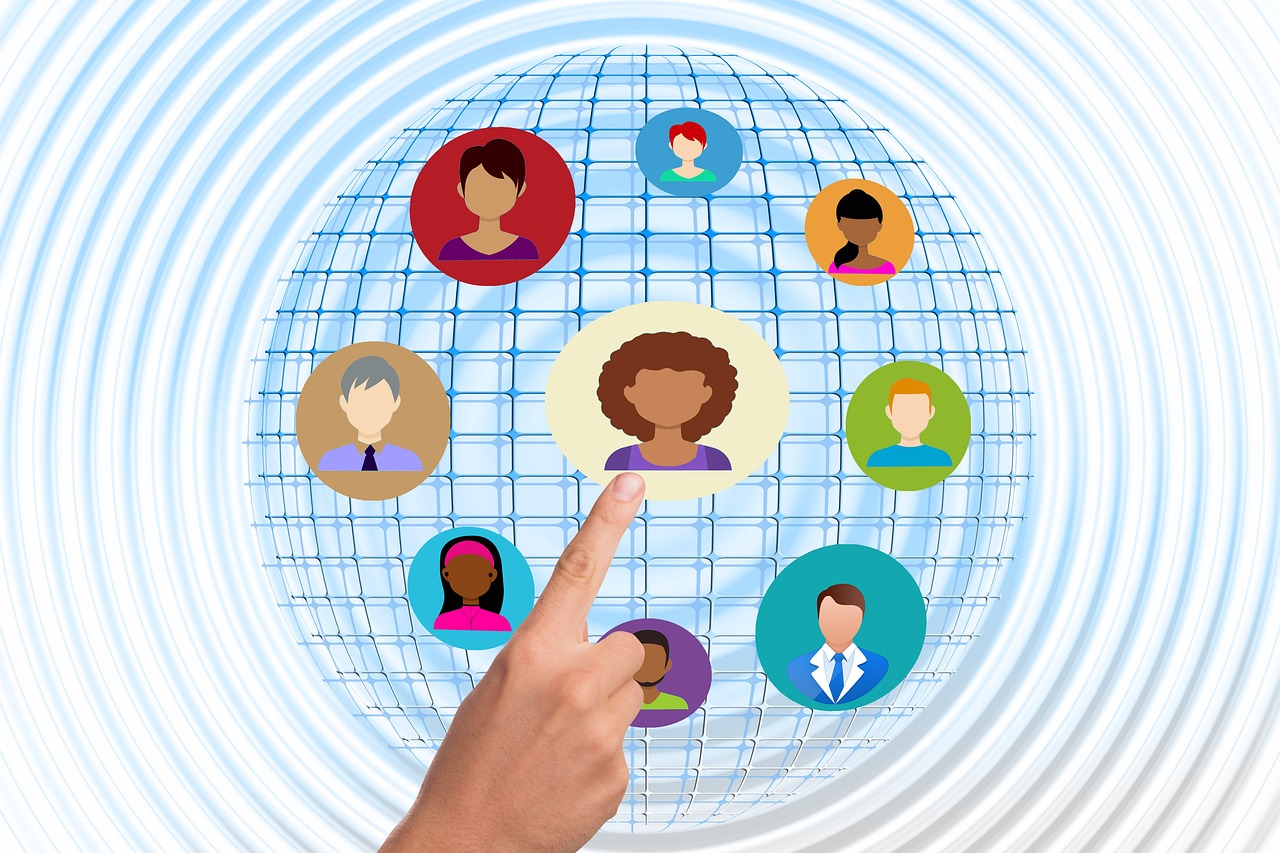
As teenagers navigate the complex world of social media, their parents can play a crucial role in fostering a healthier online experience. It's no secret that social media can be a double-edged sword; while it offers opportunities for connection and expression, it can also lead to feelings of inadequacy and anxiety. Therefore, open lines of communication between parents and teens are essential. By discussing the implications of social media use, parents can help their children develop a more balanced perspective on their online interactions.
One effective way for parents to support their teens is through education. By informing them about the potential dangers and benefits of social media, parents can empower their children to make informed choices. This could involve sharing articles, discussing real-life examples, or even watching documentaries together that highlight the impact of social media on mental health. When teens understand the psychological effects of their online behavior, they are more likely to engage in self-reflection and moderation.
Moreover, setting boundaries around social media use can significantly protect teens' mental health. Parents should consider establishing clear guidelines regarding screen time, the types of platforms their teens can use, and the content they are allowed to engage with. For instance, a family agreement could outline specific times when social media use is permitted, encouraging teens to participate in offline activities that promote their well-being, such as sports, reading, or family outings. Here’s a simple table that illustrates some potential boundaries:
| Boundary Type | Description |
|---|---|
| Screen Time Limits | Set daily or weekly limits on social media use. |
| Content Restrictions | Monitor the types of content and platforms used. |
| Offline Activities | Encourage participation in offline hobbies and sports. |
Additionally, parents should model healthy social media habits themselves. When teens see their parents engaging in positive online behavior, such as limiting their own screen time or being mindful of the content they share, they are likely to mimic these behaviors. This can create a family culture that prioritizes mental health and well-being over online validation.
Ultimately, it's about creating a supportive environment where teens feel comfortable discussing their online experiences. Regular check-ins can help parents stay informed about their child's social media interactions, allowing them to address any concerns before they escalate. By fostering this kind of open dialogue, parents can help their teens navigate the ups and downs of social media with greater confidence and resilience.
- How can I start a conversation with my teen about social media?
Begin by asking them about their favorite platforms and what they enjoy about them. Share your own experiences and express genuine interest in their online interactions. - What should I do if I notice my teen struggling with self-esteem issues related to social media?
Encourage them to talk about their feelings and remind them that social media often presents a distorted view of reality. Consider seeking professional help if needed. - How can I help my teen establish healthy boundaries?
Work together to create a family agreement that outlines specific rules for social media use, including time limits and content restrictions.

In today's digital age, open communication between parents and teens is more crucial than ever, especially regarding social media. Many parents might feel overwhelmed by the rapid pace of technological advancement, but it’s essential to bridge this gap. By fostering an environment where teens feel comfortable discussing their online experiences, parents can help them navigate the complexities of social media. Have you ever thought about how much time your teen spends scrolling through their feeds? It might surprise you to learn that the average teen spends over 3 hours a day on social media platforms! This extensive exposure can shape their perceptions and self-esteem, making it imperative for parents to engage in meaningful conversations about it.
To facilitate these discussions, parents should focus on educating their teens about both the positive and negative aspects of social media. For instance, while social media can be a powerful tool for connection, it can also lead to harmful comparisons and unrealistic expectations. Parents can encourage their teens to reflect on their feelings after using social media. Questions like, “How did that post make you feel?” or “Do you think the images you see are realistic?” can spark insightful conversations.
Moreover, understanding the psychological effects of social media is vital. Parents can educate themselves and their teens about issues such as FOMO (Fear of Missing Out) and its impact on self-esteem. By discussing these topics openly, parents can help their teens develop a critical eye towards their online interactions. It’s about creating a safe space where teens can express their feelings and concerns without fear of judgment.
One effective approach is to set aside regular family time to talk about social media. This could be during dinner or a designated “tech-free” hour where everyone shares their thoughts on what they’ve encountered online. Such practices not only strengthen family bonds but also empower teens to articulate their feelings. Additionally, parents can share their own experiences with social media, highlighting both the positives and the pitfalls they’ve encountered. This relatability can make discussions feel less like lectures and more like collaborative problem-solving.
In conclusion, communication and education about social media are not just about setting rules; they are about building trust and understanding. By encouraging open dialogue, parents can guide their teens in making informed decisions about their online presence, ultimately fostering healthier self-esteem and self-worth. Remember, it’s not just about monitoring their activity but also about engaging with them in a way that promotes critical thinking and emotional intelligence.
- How can I start a conversation about social media with my teen?
Begin by asking open-ended questions about their online experiences. Show genuine interest in their interactions and feelings. - What are some signs that my teen may be struggling with social media?
Look for changes in mood, increased withdrawal, or unusual behavior related to their online presence. - How much screen time is considered healthy for teens?
While there’s no one-size-fits-all answer, the American Academy of Pediatrics suggests that teens should limit recreational screen time to no more than 1-2 hours per day. - What resources are available to help educate myself and my teen about social media?
There are numerous online resources, workshops, and books dedicated to understanding social media’s impact on mental health.
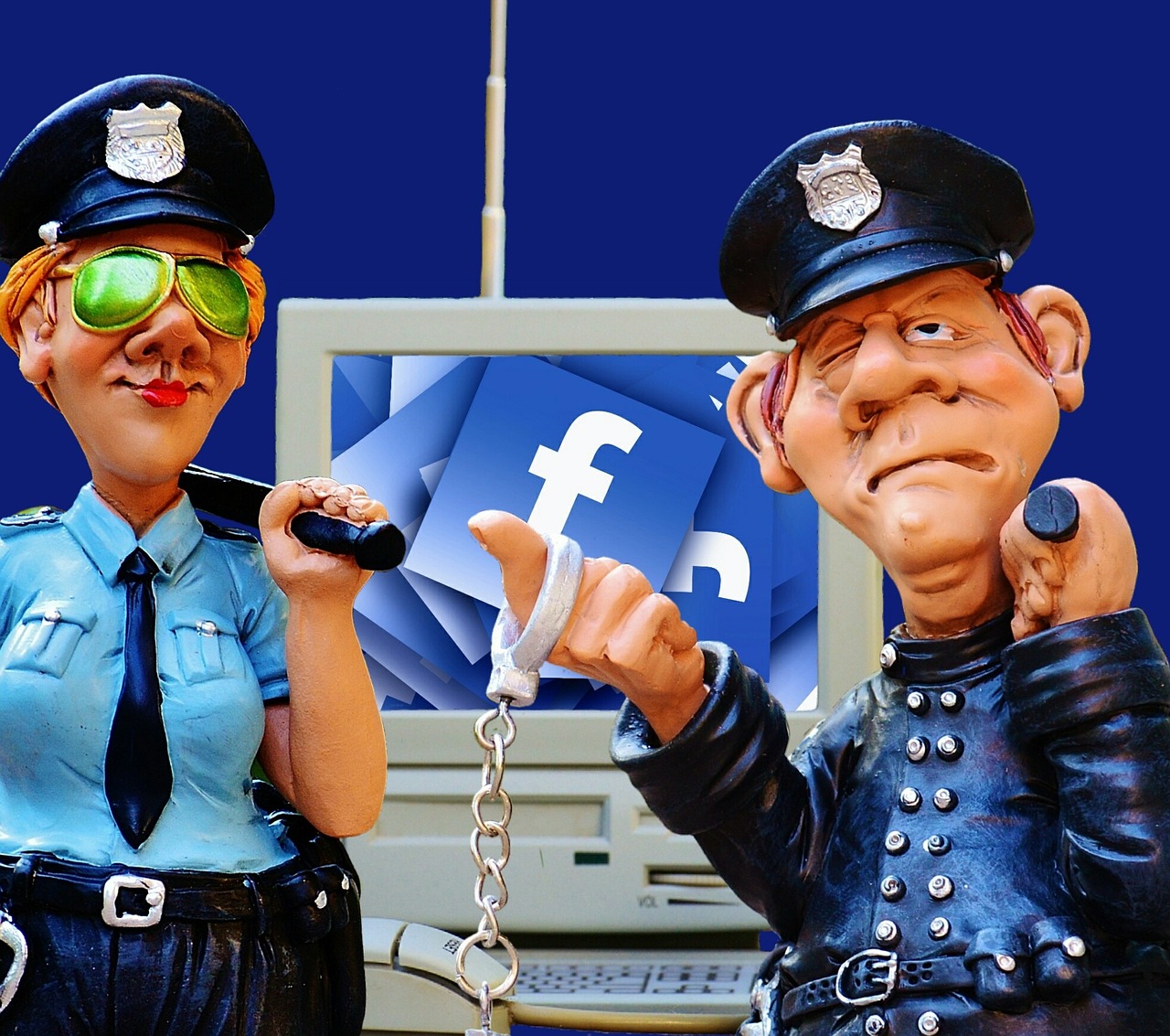
In the digital age, where social media is just a click away, setting boundaries becomes essential for maintaining a healthy relationship with online platforms. Teens often find themselves engulfed in a whirlwind of notifications, likes, and comments, which can be exhilarating yet overwhelming. It’s crucial for both parents and teens to establish clear limits that promote a balanced lifestyle. But how do we go about this? Well, it starts with open dialogue and understanding.
One effective way to set boundaries is by creating a social media schedule. This involves designating specific times for social media use, allowing teens to engage without it consuming their entire day. For example, you might agree on a couple of hours in the evening after homework is done. This not only helps in managing time but also encourages productivity in other areas of life. Here’s a simple table to illustrate a potential weekly schedule:
| Day | Social Media Time | Other Activities |
|---|---|---|
| Monday | 7 PM - 9 PM | Homework, Reading |
| Tuesday | 7 PM - 9 PM | Sports Practice |
| Wednesday | 7 PM - 9 PM | Family Time |
| Thursday | 7 PM - 9 PM | Creative Hobbies |
| Friday | 7 PM - 10 PM | Socializing with Friends |
| Saturday | 2 PM - 4 PM | Outdoor Activities |
| Sunday | No Social Media | Family Day |
Additionally, it’s important to discuss the types of content that are appropriate to engage with. Setting guidelines about what is acceptable can help teens navigate the often murky waters of social media. For instance, encourage them to avoid content that promotes unrealistic standards or negativity. Remind them that it’s okay to unfollow accounts that make them feel bad about themselves. After all, social media should be a source of joy and connection, not comparison and despair.
Moreover, fostering an environment where teens feel comfortable discussing their online experiences is key. Encourage them to share their feelings about what they see and how it affects them. This not only strengthens your bond but also allows for timely interventions if they encounter negative influences. Remember, it’s not just about setting rules; it’s about creating a supportive space where they can thrive both online and offline.
Lastly, consider implementing tech-free zones in the house, such as during family meals or in bedrooms at night. This can help teens disconnect and engage with their immediate surroundings, fostering better relationships with family and friends. By setting these boundaries, you’re not just protecting their mental health; you’re also teaching them valuable lessons about moderation and self-care.
- What are the signs that my teen is spending too much time on social media? Look for changes in mood, decreased interest in offline activities, or a drop in academic performance.
- How can I encourage my teen to engage with positive content? Help them curate their feeds by suggesting uplifting accounts and discussing the importance of positivity.
- What should I do if my teen is being bullied online? Encourage them to block the bully and report the behavior to the platform. Open communication is essential in these situations.
Frequently Asked Questions
- How does social media positively impact teens' self-esteem?
Social media can create a sense of belonging and community among teens. When they engage with supportive friends or groups online, it can boost their confidence and provide positive reinforcement. This connection often leads to encouragement and validation, which are essential for healthy self-esteem.
- What are the negative effects of social media on teens' self-esteem?
Teens often find themselves comparing their lives to the curated images and posts of others, leading to feelings of inadequacy. This social comparison can create a distorted view of reality, where they feel they don’t measure up, ultimately harming their self-worth and mental health.
- How does social media influence body image among teenagers?
Social media platforms frequently showcase idealized body types and lifestyles, which can distort teens' perceptions of beauty. Exposure to these unrealistic standards can lead to body dissatisfaction and unhealthy self-image, making it crucial for teens to understand the difference between reality and the images they see online.
- What role do influencers play in shaping teens' beauty standards?
Influencers often promote specific beauty ideals and lifestyles that can significantly impact how teens perceive themselves. Their curated content may lead to unrealistic expectations and pressure to conform to these standards, which can exacerbate body image issues and lower self-esteem.
- What coping strategies can help teens deal with social media pressures?
Teens can adopt several coping strategies, such as limiting their social media use, curating their feeds to include positive influences, and practicing self-compassion. Engaging in offline activities and discussions about their feelings can also help them navigate the pressures of social media more effectively.
- How does FOMO (Fear of Missing Out) relate to social media and anxiety?
FOMO is often amplified by social media, as teens see friends engaging in activities without them. This can lead to increased anxiety and feelings of exclusion, which can negatively impact their self-esteem. Recognizing this cycle is essential for developing healthier online habits.
- What can parents do to support their teens' social media use?
Parents can play a vital role by maintaining open communication about social media's effects. Discussing the potential risks and benefits helps teens navigate their online experiences. Additionally, setting boundaries around social media use can protect their mental health and encourage a balanced approach.
- How can parents educate their teens about social media?
Education can be fostered through discussions about the impact of social media on self-esteem and mental health. Parents can share resources, encourage critical thinking about online content, and highlight the importance of authenticity over comparison, helping teens develop a healthier relationship with social media.
- What boundaries should parents consider for social media use?
Establishing boundaries could include setting time limits on social media use, monitoring the platforms teens engage with, and encouraging breaks from online interactions. This balanced approach helps protect their mental health while allowing them to enjoy the benefits of social media.









